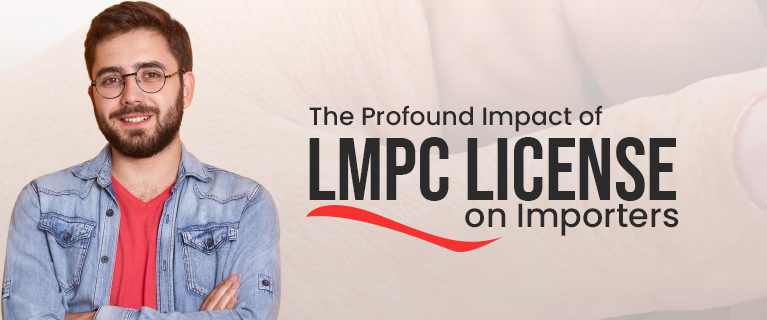The Profound Impact of LMPC License on Importers
In the dynamic world of international trade, importers play a crucial role in ensuring the seamless flow of goods across borders. However, with the increasing emphasis on consumer rights and fair trade practices, regulatory bodies have introduced various measures to protect consumers and maintain market transparency. One such regulatory requirement that has a profound impact on importers is the Legal Metrology Packaged Commodities (LMPC) License.
The Legal Metrology Act, which encompasses the LMPC regulations, is designed to regulate weights and measures used in trade and commerce. The LMPC license, a mandatory certification for businesses involved in importing packaged commodities, has far-reaching implications that extend beyond mere compliance. In this blog, we'll explore the significant impact of the LMPC license on importers and how it shapes their operations.
Ensuring Accuracy and Fair Trade:
The primary objective of the LMPC license is to ensure the accuracy of weights and measures in packaged commodities. For importers, this means adhering to strict standards in labeling, packaging, and quantifying products. Compliance with LMPC regulations fosters fair trade practices, as consumers can trust that the quantity mentioned on the packaging is accurate. Importers must invest in precise measuring instruments and adhere to standardized packaging procedures to obtain and maintain the LMPC license.
Legal Compliance and Avoiding Penalties:
Non-compliance with LMPC regulations can result in severe consequences, including hefty fines and legal actions. Importers failing to obtain the necessary LMPC license risk facing penalties that can impact their bottom line and reputation. A commitment to legal compliance not only safeguards importers from financial repercussions but also builds trust with regulatory authorities and consumers alike.
Read also this -: The Implications of LMPC CertificationConsumer Protection and Building Trust:
In an era where consumer awareness is at its peak, the LMPC license plays a pivotal role in protecting consumers from deceptive practices. Importers must prioritize consumer rights by accurately labeling packaged commodities with essential information such as net quantity, MRP (Maximum Retail Price), and product specifications. This transparency not only complies with LMPC regulations but also builds trust among consumers, contributing to a positive brand image.
Streamlining Cross-Border Trade:
The LMPC license acts as a streamlined mechanism for regulating packaged commodities in cross-border trade. Importers adhering to LMPC standards contribute to the harmonization of trade practices, reducing friction at customs and facilitating smoother transactions. This standardization fosters international trade relations by ensuring that imported goods meet the same stringent measures as domestically produced ones.
Competitive Edge in the Global Market
Having the LMPC license gives importers a competitive edge in the global market. Compliance with international standards not only enhances the credibility of imported products but also positions the importing business as one that values quality and consumer satisfaction. In a marketplace where consumer preferences are increasingly aligned with ethical and transparent practices, holding an LMPC license becomes a symbol of commitment to excellence.
Supply Chain Efficiency and Cost Reduction
Adopting LMPC-compliant practices requires importers to invest in efficient supply chain processes. Accurate measurement and standardized packaging contribute to minimizing errors and reducing operational costs. By streamlining their supply chain in line with LMPC regulations, importers enhance efficiency, resulting in cost savings that can be passed on to consumers or reinvested in further improving business operations.
Read also this -: How can I get a Legal Metrology Certificate in IndiaContinuous Improvement and Innovation:
Obtaining and maintaining an LMPC license is not a one-time task; it requires continuous commitment to quality and adherence to evolving standards. Importers are compelled to stay updated with regulatory changes, fostering a culture of continuous improvement and innovation. This adaptability not only ensures ongoing legal compliance but also positions importers as industry leaders committed to meeting and exceeding regulatory expectations.
In conclusion, the LMPC license has a profound impact on importers, influencing various aspects of their operations. From ensuring accuracy in measurements to fostering fair trade practices and building consumer trust, the LMPC license is a critical element in the evolving landscape of international trade. Importers who recognize the significance of LMPC compliance are not only safeguarding themselves from legal repercussions but are also contributing to a global marketplace characterized by transparency, fairness, and consumer protection.




Comments
Post a Comment